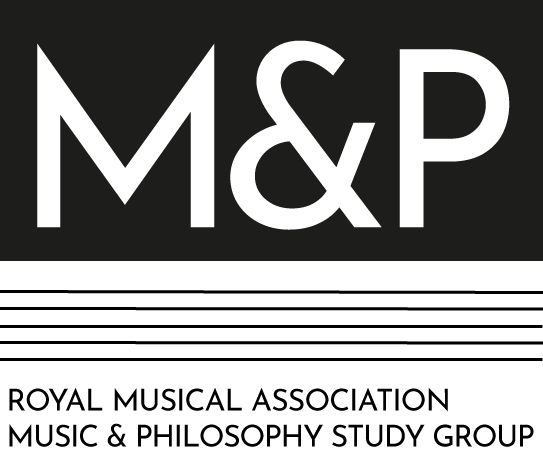Symposium at the University of Vienna and the University of Music and Performing Arts Vienna (mdw)
12–14 November 2020
Organisation: Wolfgang Fuhrmann (Leipzig), Gabriele Geml (Vienna), Han-Gyeol Lie (Graz), Nikolaus Urbanek (Vienna)
Call for Papers
“Es gibt kein richtiges Leben im falschen.” (There is no right life in the wrong one.) – “Bei vielen Menschen ist es bereits eine Unverschämtheit, wenn sie Ich sagen.” (In many people it is already an impertinence to say ‘I’.) – “Aufgabe von Kunst heute ist es, Chaos in die Ordnung zu bringen.” (The task of art today is to bring chaos into the order.) It is pointed phrases such as these, almost describable as slogans, which have made Theodor W. Adorno (1903–1969) familiar even to those who have not read his writings, and which are often, in the form of erroneous disambiguation, substituted for the complex thought movement of his texts. Adorno himself certainly did not see his philosophical contribution in terms of “hypotheses or positions” but rather in the dynamic context of textual meaning, which he marked with terms such as “Kraftfeld”, “Essay,” or “Komposition”, and the intention of which was, to him, coupled with the idea of autonomy.
It is no doubt possible to describe or translate in abstract manner the theoretical or socio-critical content highlighted in Adorno’s writings. This may, however, lead to a loss of philosophical content, for no less undoubtedly do Adorno’s texts draw their strength from the tension that arises from his hermetic and yet unexpectedly vivid language, frequently permeated by polemical wit. This language is by no means – depending on the point of view – merely a literary “style” or philosophical “jargon”. The verbal Gestalt in its particular form, consciously defying one-sided reasoning or a clearly arranged structure, is in fact an integral part of his philosophical thought movement; it is not a mere form for content which could be expressed in a different way but is of constitutive significance for what is to be considered and reflected upon.
The constitutive function of language becomes apparent precisely as an aspect of his writing which has influenced all others and to which Adorno gave the succinctly ambiguous designation of “Musikalische Schriften”, similar to how he spoke of “Ästhetische Theorie” in later years. Adorno, who had started his literary work as a music critic and who had furthermore studied composition with Alban Berg, did not only succeed in productively unravelling the dichotomy between an exact yet (to many) inaccessible musico-theoretical terminology and a metaphorical description of the expressive and atmospheric qualities of music in these writings; he also made the (to this day) controversial attempt to uncover social meanings in music with reference to the philosophical category of truth. In a twofold sense, the conception of “musical writing” seems remarkable for an author whose Fragment über Musik und Sprache concludes with the phrase: “It is by distancing itself from language” that music’s resemblance to language “finds its fulfilment.”
At a time when, according to Werner Hamacher, an “anti-philological affect” can be observed among the humanities, this conference seeks to address aspects of language, style, and writing, and in particular the relationship between verbally articulated thought and music with regard to Adorno. On the occasion of the 50th anniversary of the publication of Adorno’s Ästhetische Theorie, the conference explores the relationship between philosophical language, which as a self-reflective practice also understands itself as influenced by aesthetic forces, and the attempt to depict the musical object (or phenomenon) through language.
The conference title “Words without songs” cites Adorno’s original title proposal for the essay collections which – adhering to the musical reference – would eventually appear as “Notes to Literature”.
Topics may include but are not limited to
- “The form of the essay” and other theories of writing with respect to Adorno
- On the conception of an “aesthetic theory”
- Principles of musical forming, metaphor and rhetoric in Adorno’s writings
- Adorno as music critic
- Epistemological potentials of “musical writings” compared to musicological approaches
- The form of language as a medium of reflection on moral-philosophical and socio-political contents – Language as a form of social practice
- Academic language, rhetoric and philology
- (How) Can Adorno be translated?
- Reception, imitation, criticism of Adorno’s style and language
- Adorno’s language and language criticism in the light of current tendencies in the field of language and its evaluation (e.g. populist language; language and new media; language between identity politics and universalism)
Presentation format: individual 30-minute paper (followed by 15-minute discussion)
Abstracts with a maximum of 300 words and a short bio-bibliographical note (150 words) should be sent to Philipp Kehrer, B.A. (philipp-kehrer[at]web.de), by 5 April 2020.
Decisions on the acceptance of proposals are expected to be communicated by mid-May. We will attempt to cover travel and accommodation expenses. The conference languages are German and English.
In addition to the academic programme, a concert is planned in cooperation with the University of Music and Performing Arts Graz.
Organising and cooperating institutions:
- Institute of Musicology, Leipzig University
- Department of Philosophy, University of Vienna
- Department of Musicology and Interpretation Research, University of Music and Performing Arts Vienna (mdw)
- Institute of Piano and Institute of Composition, Theory of Music, History of Music, and Conducting, University of Music and Performing Arts Graz
- .akut – Association for Aesthetics and Applied Cultural Theory




